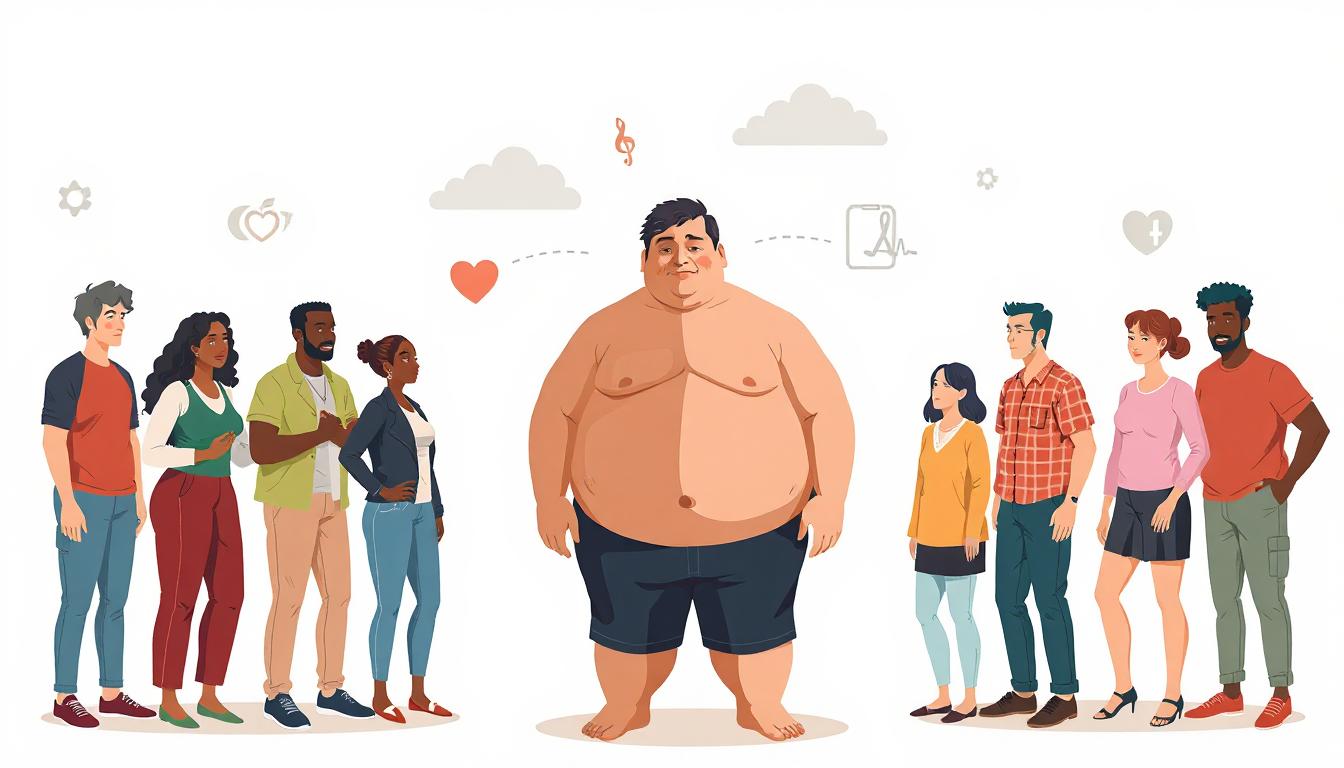A growing body of research shows that the negative judgments aimed at people living with obesity do more harm than good. Far from being merely a personal failing, weight gain often reflects a complex interplay of inherited tendencies, environmental constraints, and emotional challenges. Stigma linked to body size not only chips away at self-esteem but also discourages individuals from seeking medical care, exacerbating health risks. In reframing obesity as a multifaceted condition rather than a moral shortcoming, we can foster empathy, improve clinical outcomes, and design social policies that support—not shame—those affected. This article untangles the stigma surrounding obesity, examines its ripple effects, and highlights evidence-based strategies to promote true inclusion and well-being.
Understanding Obesity Stigma
What Is Weight Stigma?
Weight stigma (also called “sizeism”) refers to negative attitudes, stereotypes, and discriminatory actions aimed at people perceived to have excess body weight. It can manifest as derogatory comments, biased hiring practices, or poorer treatment in healthcare settings. Over time, these experiences internalize, leading people to believe the stereotypes applied to them, which further undermines mental health and deters healthy behaviors.
How Pervasive Is It?
Despite over 40% of U.S. adults having obesity, weight discrimination has risen steadily—by 66% since 1995—approaching levels seen for racial bias, especially among women. In medical settings, patients with obesity frequently report feeling dismissed or judged, leading many to delay or avoid care altogether.
Root Causes of Obesity: Beyond Willpower
Genetic Predisposition
Inherited variants can influence hunger signals, fat storage, and metabolic rate. Studies have pinpointed hundreds of genes—such as FTO and newly identified SMIM1—that contribute to obesity risk, with heritability estimates ranging from 40% to 80% in those with higher BMI classes.
Environmental Constraints
Living in a “food desert”—areas where fresh produce is scarce—heightens obesity risk by up to 30%, independent of other factors. Neighborhood design that prioritizes cars over pedestrians compounds the problem, discouraging daily physical activity.
Socioeconomic Stress
Lower-income communities often lack resources for nutritious meals or safe exercise spaces. Research shows that adults with less education and lower income have higher obesity rates, partly due to restricted access to healthful foods and health education.
Psychological Factors
Chronic stress, anxiety, and depression can trigger emotional eating and disrupt hormones regulating appetite. Nearly half of adults with obesity report mood disorders, illustrating how mental health and body weight are deeply intertwined.
Consequences of Weight Stigma
Physical Health Impact
- Delayed Care: Fear of judgment delays routine screenings and chronic disease management, worsening outcomes for diabetes, heart disease, and more.
- Complications: Obesity itself increases the risk of cardiovascular disease, type 2 diabetes, certain cancers, and sleep apnea.
Mental Health Toll
Enduring stigma often leads to low self-worth, social isolation, depression, and anxiety. Adolescents facing weight bias internalize negative messages, risking long-term psychological harm.
Economic and Social Costs
Weight discrimination in hiring and promotions translates to income loss and reduced job prospects. One analysis estimated that obesity-related stigma inflicts billions in lost productivity annually.
Debunking Common Myths
- “Obesity is just overeating.” While diet matters, genetic variants and environmental factors can predispose some to weight gain despite calorie control.
- “Thin equals healthy.” Health markers—blood pressure, lipid profiles, insulin sensitivity—vary independently of body size; many people with larger frames maintain excellent metabolic health.
- “Shaming motivates change.” On the contrary, stigma increases stress hormones like cortisol, promoting fat accumulation and discouraging behavior change.
Toward a Compassionate Framework
Language Matters
Switch from “obese person” to “person living with obesity,” emphasizing humanity over condition. Medical professionals trained in respectful, nonjudgmental communication achieve better patient engagement and outcomes.
Inclusive Healthcare Practices
- Bias Training: Educating clinicians on weight bias reduces discriminatory behaviors.
- Equipment Accessibility: Providing appropriately sized blood pressure cuffs, gowns, and exam tables ensures comfort and accurate care.
Community and Policy Interventions
- Improve Food Access: Incentives for supermarkets in underserved areas and support for farmers’ markets can reduce “food desert” impacts.
- Active-Design Neighborhoods: Building sidewalks, parks, and bike lanes fosters daily movement.
- Healthy School Programs: Replacing sugary fundraisers with fresh-fruit initiatives and integrating cooking classes into curricula cultivates lifelong habits.
Psychological Support
Integrating mental health services—cognitive behavioral therapy, support groups—addresses emotional eating and self-esteem issues, complementing nutritional and physical activity interventions.
Personal Stories: Illustrating the Journey
- Maria’s Story
Maria, a single mother in an urban food desert, struggled with obesity despite trying “do-it-all-yourself” diet plans. After joining a community garden and peer support group, she gradually lost 20 pounds, reporting improved mood and energy. - David’s Experience
As an accountant, David faced workplace bias. With his employer’s support, he accessed bias-reduction training for his team and flexible scheduling to attend therapy, resulting in both weight loss and a more understanding office culture.
Measuring Progress and Celebrating Wins
Tracking Beyond the Scale
Non-scale victories—climbing stairs without fatigue, improvements in blood sugar readings, enhanced self-confidence—offer motivation beyond mere pounds lost.
Program Evaluation
Assessing community initiatives (e.g., farmers’ markets, walking groups) through surveys and health metrics ensures resources target areas of greatest need and efficacy.
Conclusion: Shifting the Narrative
Obesity stigma deepens suffering, obstructs care, and undermines public health efforts. By acknowledging the multifactorial roots of weight gain—genes, environment, psychology—and embracing compassionate, evidence-based strategies, we can dismantle harmful stereotypes. Fostering inclusivity in language, health systems, and policy empowers individuals to pursue lasting well-being without shame. Each small choice—planting a community garden, offering bias training, celebrating non-scale victories—brings us closer to a society where health is nurtured through support rather than scorn.


